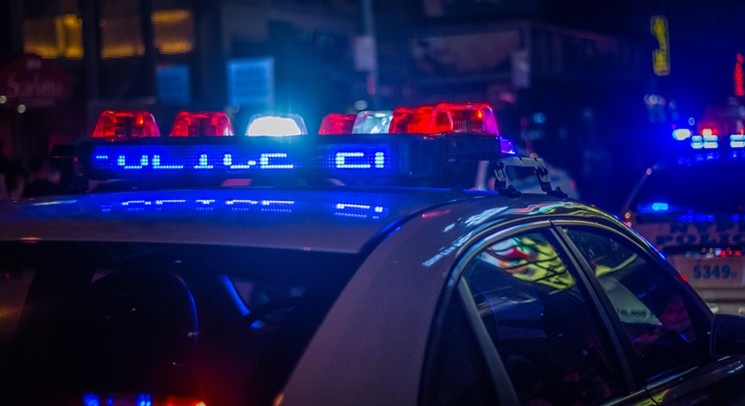
Dallas Expanded a Rapid Mental Health Dispatch Program, but Some Want Longer Hours
Original Story on The Dallas Observer
JACOB VAUGHN| JUNE 17, 2021 | 4:00AM
Around 11:30 p.m. one night earlier this year, Tearyne Almendariz, a Dallas resident, was driving down Preston Road when she saw someone in the middle of traffic. It looked like their bike was tipped over and their belongings were scattered in front of them.
Cars whizzed past, but the person remained in the middle of the road. Almendariz remembered that the RIGHT Care program had just been expanded to the area, so she gave the team a call.
Announced in 2017, the RIGHT (Rapid Integrated Group Healthcare Team) Care program created a mental health team — made up of a paramedic, a police officer and a social worker — to respond to mental health emergencies.
Additionally, social workers help out in the Dallas Police Department’s 911 call center to determine whether an individual is violent or simply needs basic help with taking their medication. It’s a partnership between Dallas police, fire departments and Parkland Hospital.
RIGHT Care showed positive results and was recently expanded, but when Almendariz called the team, they had no one to send out. She posted about it in the Reform Dallas group on Facebook, explaining what had happened.
“The dispatcher that answered said that RIGHT Care dispatches stopped at 10 p.m., and that it would be a long while before a standard unit got to the scene,” Almendariz said in the Facebook post. “But they had it scheduled as a priority 2 call, so they’d get there as soon as they could but they were too busy.”
When Carrie Prysock, the director of the Mayor and City Council Office, saw Almendariz’s posts, she reached out to the team to learn more. She relayed what she heard in the comments section of Almendariz’s post.
Prysock found that RIGHT Care actually runs until 11 p.m., but they are not likely to dispatch after 10:45 p.m. because of travel time back to the station and time to complete shift paperwork.
Almendariz is concerned the program isn’t available 24 hours a day. “Mental health needs don’t stop when the sun goes down, nor do they have a defined stopping time,” she told the Observer. Apparently, Dallas PD is looking into extending hours for the program. “Mental health needs don’t stop when the sun goes down, nor do they have a defined stopping time.” – Tearyne Almendariz, Dallas resident
An expansion of the program was high up on City Manager T.C. Broadnax’s list of to-dos during the last budget cycle. At his direction, the city pumped nearly $2,200,000 into the program so RIGHT Care could be expanded to five teams across Dallas. They operate seven days a week, 16 hours a day between two shifts. One shift runs from 7 a.m.-3 p.m. and the other runs from then until 11 p.m.
In an email, Dallas PD said they know it’s not perfect, but the operation hours were selected on need and call frequency.
“We recognize crises occur outside of these operating hours and are currently exploring the feasibility of having teams operate 24/7 for the second phase of expansion — where 5 additional teams will launch in October 2021,” the department said.
Two years in operating as a pilot program in South Central Dallas, where the highest concentration of mental health-related calls came from at the time, the program saw a 20% decrease in psychiatric calls from the area.
That’s why advocates say it works. Now, the city just needs to make sure it’s working all the time and throughout Dallas. With Dallas budget talks just a few months out, residents will have the opportunity to ask city leaders to make this happen. And it doesn’t sound like they’ll get a lot of pushback from the cops.
Mike Mata, president of the Dallas Police Association, estimates the department takes as many as a thousand mental health calls a month. Mata is often hearing from critics about how cops can better spend their time.
“If they want to address something that really takes the time of officers, we need to go back and find a better way to address mental health,” Mata told the Observer earlier this year. “The far majority of those [mental health] calls, police should not be responding to.”
KEEP THE DALLAS OBSERVER FREE… Since we started the Dallas Observer, it has been defined as the free, independent voice of Dallas, and we would like to keep it that way. Offering our readers free access to incisive coverage of local news, food and culture. Producing stories on everything from political scandals to the hottest new bands, with gutsy reporting, stylish writing, and staffers who’ve won everything from the Society of Professional Journalists’ Sigma Delta Chi feature-writing award to the Casey Medal for Meritorious Journalism. But with local journalism’s existence under siege and advertising revenue setbacks having a larger impact, it is important now more than ever for us to rally support behind funding our local journalism. You can help by participating in our “I Support” membership program, allowing us to keep covering Dallas with no paywalls. Make a one-time donation today for as little as $1.Jacob Vaughn, a former Brookhaven College journalism student, has written for the Observer since 2018, first as clubs editor. More recently, he’s been in the news section as a staff writer covering City Hall, the Dallas Police Department and whatever else editors throw his way.
- CONTACT:
- Jacob Vaughn
- FOLLOW:
- Twitter: @@officialjacobv




Leave a Comment